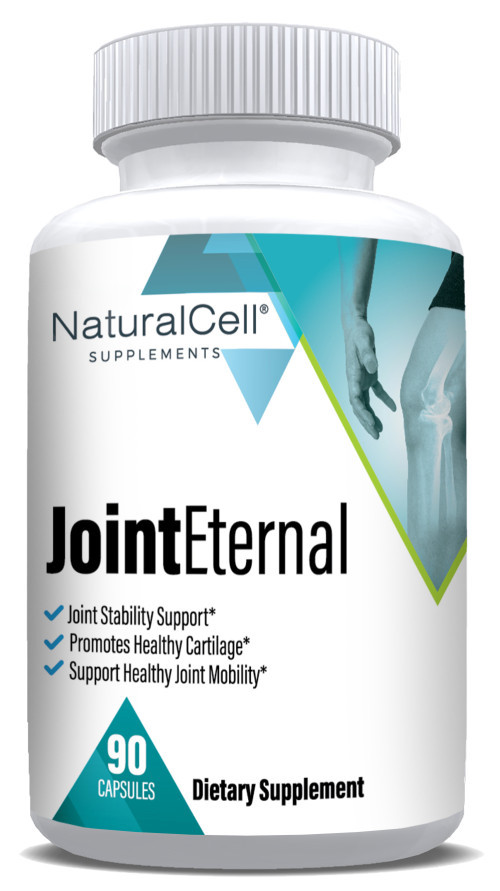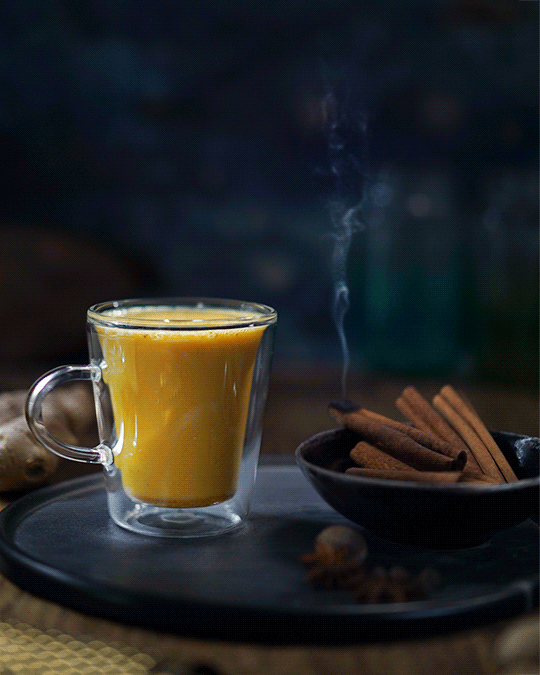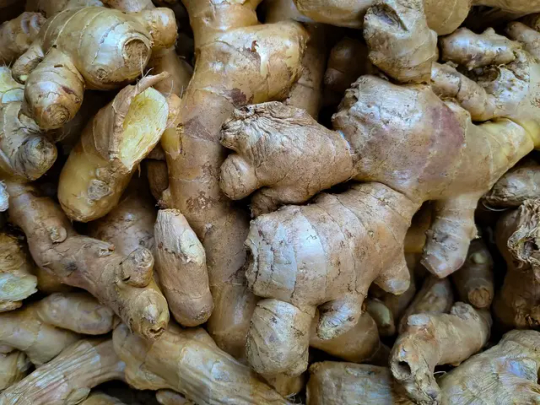#turmeric for joint pain
Explore tagged Tumblr posts
Text
The Anti-Inflammatory Benefits of Turmeric: An In-Depth Exploration
Turmeric is more than just a vibrant spice that adds color to curries; it is a powerful medicinal herb with a rich history spanning thousands of years. Known scientifically as Curcuma longa, turmeric’s therapeutic potential lies primarily in curcumin, a bioactive compound that constitutes around 2-8% of turmeric by weight. Modern research has confirmed what traditional systems like Ayurveda and…
#anti-inflammatory foods#curcumin supplements#natural remedies#turmeric and brain health#turmeric benefits#turmeric for heart health#turmeric for joint pain
0 notes
Text
The Incredible Health Benefits of Curcumin: A Powerful Natural Remedy
Curcumin, the active compound found in turmeric (Curcuma longa), has been used for centuries in Ayurvedic and traditional medicine for its anti-inflammatory, antioxidant, and healing properties. Modern science has confirmed many of these benefits, making curcumin one of the most studied natural health supplements today. Below, we explore the top health benefits of curcumin and how it can…
#Alzheimer’s prevention#Anti-Inflammatory#antioxidant#Ayurvedic medicine#bioavailability#Brain Health#cancer prevention#Curcumin benefits#curcumin supplements#digestion#golden milk#health#heart health#joint pain relief#lifestyle#liver detox#natural remedies#nutrition#skin health#turmeric health benefits#weight loss#wellness
0 notes
Text
A Game-Changer for Joint Health: My Experience with JointEternal Supplements
As someone who has been dealing with occasional joint discomfort for years, I’m always on the lookout for effective ways to support my joint health. After coming across JointEternal Supplements, I decided to give them a try, and I am thrilled to share my positive experience.

Why I Chose JointEternal
I chose JointEternal Supplements after doing extensive research on joint health products. The blend of scientifically backed ingredients, including glucosamine, chondroitin, and turmeric, immediately caught my attention. These are known to support joint flexibility, reduce inflammation, and improve overall mobility. The promise of a natural solution made this product stand out, and I was eager to see if it lived up to the hype.
Noticeable Improvement in Mobility
Within the first few weeks of using JointEternal, I noticed a significant improvement in my mobility. Previously, activities like climbing stairs or going for long walks would leave me feeling stiff and sore. After incorporating this supplement into my daily routine, these tasks became much easier. I felt a newfound lightness in my movements and was able to engage in physical activities without hesitation.
Effective Pain Relief
One of the standout benefits of this supplement has been the relief it provided from occasional joint pain. Before trying JointEternal, I often experienced discomfort in my knees and lower back, especially after a long day. Since using this product, the discomfort has noticeably reduced. I attribute this to the anti-inflammatory properties of turmeric, one of the key ingredients in the formula. It’s clear that the product is designed with care and attention to detail.
Easy to Incorporate Into Daily Life
The convenience of using JointEternal is another factor worth highlighting. The capsules are easy to swallow, and the recommended dosage fits seamlessly into my routine. Unlike some other supplements I��ve tried, these didn’t cause any stomach upset or side effects. The company also provides clear instructions, which makes it hassle-free to follow.
Backed by Quality and Trust
I appreciate that JointEternal is made from high-quality ingredients and adheres to strict manufacturing standards. Knowing that this product is created by a brand that values transparency and customer satisfaction has given me additional confidence. The packaging is also sleek and professional, reflecting the care that goes into the product.
Overall Results and Recommendations
After two months of consistent use, I can confidently say that JointEternal Supplements have made a positive difference in my life. My joints feel stronger, more flexible, and less prone to discomfort. I now look forward to staying active and pursuing hobbies I had previously avoided due to joint issues.
If you’re searching for a reliable supplement to support joint health, I highly recommend giving JointEternal a try. It’s a game-changer for anyone seeking a natural, effective solution to joint discomfort. This product has exceeded my expectations, and I plan to continue using it to maintain my improved joint health.
#Joint Eternal Supplements#joint health#natural supplements#joint pain relief#mobility improvement#glucosamine#chondroitin#turmeric benefits#anti-inflammatory supplements#healthy joints#active lifestyle#supplements for pain relief#arthritis support#joint care#flexibility support
0 notes
Text
A bit of a week, or three
It's been a bit crazy for me lately. Which means meat and cheese has had much more of a presence in my diet lately.
But that changes today.
I did have some mozzarella cheese with my lunch, but the rest was mango and rice. I didn't give in and go out and get food! I actually have a plan for lunches, I just have to follow through with it. But I have plans to get me that far, too.
Today was another wonderful change. I had bought some turmeric gummies because I needed new turmeric supplements, and I was tired of gagging on pills. They helped, but they weren't as effective as the ones I had been getting from Meijer. I picked up more on Sunday. I took one before bed last night and my knees and back feel so much better than usual after work today!
It's making me feel better, which is making me want to eat better again. Sometimes it's the little things.
#turmeric is great for joint pain#just make sure it has black pepper in it too#or else it's not as effective
0 notes
Text
Natural Pain Killers:
Source Link
Related Resources: Pain Relief Without Drugs Wild Lettuce for a Healthy Painkiller Alternative DIY Dental Care DIY Earache Remedies
[11-Cs Basic Emergency Kit] [14-Point Emergency Preps Checklist] [Immediate Steps to Take When Disaster Strikes] [Learn to be More Self-Sufficient] [The Ultimate Preparation] [P4T Main Menu]
This blog is partially funded by Affiliate Program Links and Private Donations. Thank you for your support.

#medicine natural#nature's medicines#natural remedies#health#pineapple for stomach bloating and gas#blueberries for bladder and urinary tract infections#turmeric for chronic pain#ginger for muscle aches#peppermint for sore muscles#apple cider vinegar for heartburn#cherries for joint pain and headaches#cloves for toothache and gum inflammation#garlic for earache#first aid#natural pain relief#pain relief natural#prepare4tomorrow#prepper#prepping#prepared#survival#survivalist#survivalism
463 notes
·
View notes
Text
0 notes
Text
Herbs for healing 🌿
🌿 Herbs for immune support
• Echinacea: Boosts the immune system and fights colds.
• Elderberry: Helps with colds, flu, and respiratory health.
• Astragalus: Strengthens immunity and combats stress.
🌿 Herbs for digestive health
• Peppermint: Eases bloating, gas, and indigestion.
• Ginger: Relieves nausea and improves digestion.
• Fennel: Reduces bloating and supports gut health.
🌿 Herbs for stress and anxiety
• Ashwagandha: Reduces stress and supports adrenal health.
• Chamomile: Calms the mind and aids sleep.
• Lemon balm: Soothes anxiety and promotes relaxation.
🌿 Herbs for skin health
• Calendula: Speeds up wound healing and reduces inflammation.
• Turmeric: Fights inflammation and brightens the skin.
• Aloe vera: Soothes burns and hydrates the skin.
🌿 Herbs for detoxification
• Milk thistle: Supports liver health and detoxification.
• Dandelion: Cleanses the liver and promotes kidney health.
• Burdock root: Purifies the blood and supports skin health.
🌿 Herbs for hormonal balance
• Maca root: Supports energy and hormonal balance.
• Chasteberry (Vitex): Helps regulate menstrual cycles.
• Red clover: Balances hormones and supports menopause.
🌿 Herbs for pain relief
• Willow bark: A natural alternative to aspirin.
• Devil’s claw: Eases joint pain and inflammation.
• Cayenne pepper: Reduces pain through its active compound, capsaicin.
🌿 Herbs for energy and focus
• Ginseng: Boosts energy and mental clarity.
• Rhodiola: Enhances focus and reduces fatigue.
• Gotu kola: Improves memory and brain function.
🌿 Herbs for respiratory health
• Mullein: Supports lung health and soothes the respiratory system.
• Thyme: Clears mucus and fights infections.
• Licorice root: Soothes sore throats and reduces inflammation.
Always speak with a healthcare provider before starting any new herbs, especially if you’re pregnant, nursing or taking medications.
291 notes
·
View notes
Text
Rosy Care for Mom: A Daughter’s Little Handbook🍓
✧・゚: ❀ :・゚🍓🥝🍉・゚: ✧・゚: ❀ :



💌 A little heartwarming note: "For the one who always takes care of me, now it’s my turn to care for her."
˗ˏˋ 💖 🧸 🍰 🫧 🌷 👒 🎀 💌 ˎˊ˗˗ˏˋ 💖 🧸 🍰 💌 ˎˊ˗
Make them tea or coffee(anything)without being asked.
Write them little notes of appreciation.
Give them hugs—parents love that!
Leave Sticky Notes in Unexpected Places--On the fridge: "You make the best food ever!"......in her purse: "This is a lucky day because you are amazing!"......On her mirror: "Prettiest mom award goes to... YOU!"
Make Them Laugh
Tell them funny stories from your day.
Be playful—maybe imitate them in a funny (but respectful) way!
Bring home their favorite snack.
Play their favorite song when they’re tired.
A simple "Mom/Dad, I love you" out of nowhere can brighten their day.
Send Her Random Loving Texts 💌Out of nowhere, "Mom, you’re my sunshine!"
Take care of yourself,study hard, follow your dreams: parents biggest joy is seeing their child happy & healthy
Help Her Stay Active (Gently)
Encourage gentle exercises like yoga, stretching, or light walking to keep her joints flexible. Even 10–15 minutes a day can help.
Look for knee-friendly exercises like sitting leg lifts or slow knee bends. You can do them together to keep her motivated!
Turmeric & Ginger – Make her turmeric milk or tea. It has strong anti-inflammatory benefits.
Leafy greens & fruits – Spinach, oranges, and berries help reduce joint pain.
Omega-3 fatty acids – Encourage her to eat nuts, flaxseeds, and fish.
Avoid processed food & sugar – These can increase inflammation.
A warm compress on her knees for 15–20 minutes can help with pain.
gently massage her knees with warm mustard oil and garlic or pain-relief oil.
Support her in eating nutritious meals and doing light movement daily.
Water helps keep joints lubricated. Encourage her to drink enough water and herbal teas daily.
Laughter and relaxation help reduce pain! Watch light-hearted movies together, talk to her, and keep her mood positive.
treat her to her favorite snack after a long day
Make her -honey-lemon water in the morning—it’s refreshing & great for joints.
Include calcium-rich foods like sesame seeds, dairy, or almonds for her joints.
Share funny memes or jokes with her.
A warm compress on her knees every night.



𓂃 𖦹˚。⋆ 💗 ☕ 🐰 🍰 📖 💗 ☕ 🐰 🍰 📖 🌸 𖦹˚。𓂃
🌼 Thoughtful & Meaningful Ways to Make Mom Happy~
💆 Free Massage from Your Favorite Daughter!
🛍️ Shopping Date with Me!
🩷📀Silly & Playful Ways to Keep Mom Laughing~
Dramatic Fake Cry When She Ignores You 😂if she’s busy and doesn’t listen, do a dramatic soap-opera-style fake cry: "Wow, you used to love me more!" (She’ll laugh for sure!)[Use it situation wise ]
Pretend to Interview Her Like a Celebrity 🎤"Mom, how does it feel to be the best mom in the world?"record her reaction—she’ll either laugh or give a cute answer!
Give Her a "Sunshine Box" 🌞Fill a box with yellow things (candies(not much), socks, scented candles, notes, a cute mug)Write: "Whenever you need a little sunshine, open this!"
Announce "Mom Appreciation Days" Randomly 🌟Suddenly say: "Today is officially 'Best Mom in the Universe' Day!"Hand her a "Best Mom" award (DIY paper trophy!)
💛 Small, Everyday Habits to Make Her More Positive & Happy~
Start the day with a morning hug & compliment ("You look beautiful today, Mom!").
Make her laugh before bed—even just a funny meme or joke.
Bring her small surprises—even a chocolate bar or flowers on a random day.
Encourage her to do something for herself (hobbies, self-care, dressing up).
✧・゚: ✧・゚: ❀ :・゚🍓🥝🍉・゚: ✧・゚: ❀ :・゚✧:・゚✧:・゚✧
PS: it can be for dad too but I had like to make a separate one for dad🩷📀
#it girl#self improvement#self care#that girl#uniblr#becoming that girl#pink aesthetic#pink#wonyoungism#girlblogging#this is a girlblog#caringforyou#mother#happy mother's day#mom appreciation#cherish#soft aesthetic#cozy vibes#dreamy aesthetic#self love#self care routine#self growth#romantizing life#it girl energy#pintrest girl#pinkcore#girl code#love#studyblr#health and wellness
96 notes
·
View notes
Text
Don’t suffer the agony of joint pain any longer. You can get rid of it in just a few simple steps. If you have jount pain, you’re not alone. Millions of Americans have chronic knee pain and often it leaves them unable to live normal lives.
There are easy ways to relieve your knee pain using simple home remedies. Here’s one of the best you can do from the comfort of your own home!
Recipe :
3 tbsps :
• Moringa powder
• Turmeric powder
• Ginger powder
• 1 tsp Ground pepper
• 3-4 tbsp Manuka honey, any honey will work
What are their other benefits : 👇
Moringa🌿 :
- Protecting the liver, treating stomach complaints, treating mood disorders
Turmeric🧡 :
- Improve heart health and prevent against Alzheimer’s and cancer
Ginger💛 :
- Prevent stress and damage to your body’s DNA
Black pepper🖤 :
- May benefit your brain, May have cancer-fighting properties, reduce the risk of many diseases
Honey🍯 :
- Anti-inflammatory, antioxidant and antibacterial agent
- Barbara O'Neill 🤔
#pay attention#educate yourselves#educate yourself#knowledge is power#reeducate yourself#reeducate yourselves#think about it#think for yourselves#think for yourself#do your homework#do some research#do your own research#ask yourself questions#question everything#for your health#health tips#healthy food#healthy living#natural remedies#barbara o'neill#barbara o'neil
347 notes
·
View notes
Note
hi there, one disabled Viktor to another. How do you deal with the pain flare ups that come with weather changes? It's been raining all day for me, and my joints are absolutely killing me. Like, to the point where I couldn't go up the stairs to my flat. I know Piltover isn't fantastic at being accessible, and we both know Zaun is nearly impossible at times to navigate. So how do you manage?
Also, your fashion sense is impeccable <3
Oh, thank you very much. I… simply wear a version of the Academy uniform, though I suppose it suits me well enough.
My work days are shorter as exhaustion does creep up on me. I have medications prescribed to me to help on such occasions, and I do try to take these when necessary, though in practice, I often forget about their existence.
I drink anti-inflammatory teas most days, and I highly recommend them in addition to appropriate rest. Turmeric, peppermint, ginger, and green tea all have excellent medicinal properties. However, if these are not "doing the job," be sure to speak with a doctor who can advise you on more helpful practices.
Wishing you the best, fellow Viktor!
#viktor lol#arcane rp#viktor league of legends#arcane roleplay#viktor arcane#arcane viktor#viktor#arcane#askviktor#ask viktor#viktor rp arcane#viktor rp#viktor roleplay#arcane ask blog#viktor arcane rp#arcane rp blog#arcane league of legends#arcane lol
22 notes
·
View notes
Text
Planets and your health.
Ketu or south node gives diseses which could go undiagnosed till last stage.
Sometimes, diseases can't be diagnosed by any doctor, even patient will not able to understand but he/she can feel something wrong with her body..
Rahu is poison, any infection in your body that spreads rapidly, or poisonous insects or animals like snakes, bees are North node.
Food poisoning is also due to North node.
Any sudden event or disease is caused by north and south node.
People suffering from self harm or suicidal tendancy has bad north node or north node with moon.
Mars is blood, afflicted Mars will give skin problems and allergies
Remedy is to take Neem leaves or tablets every day and keep your blood clean.
Venus rules your tongue and your throat region, blisters and ulcers on throat and tongue are due to bad Venus.
Venus is also your skin glow and texture, so if you don't have skin glow it is due to afflicted Venus.
Mercury rules nervous system, bad Mercury gives neural problems and Mercury also rules your teeth, bad breath, cavity, and germs in your teeth is due to bad Mercury.
Jupiter rules your fat inside your body and your liver, bad liver, fatty liver, fat inside body is due to Jupiter.
Remedy is to drink turmeric water every morning.
Bad Saturn gives hair loss or hair fall, also Saturn rules all the joints inside your body, any pain in joints like arthritis is caused by bad Saturn.
Saturn also gives diseses which takes more time to be cured and heals slowly.
Moon is responsible for your mental health, problems related to stress, insomnia anxiety, phobias shows afflicted moon.
219 notes
·
View notes
Text
Use Turmeric for Anti-Inflammatory Benefits

While turmeric is widely recognized for its anti-inflammatory properties, pairing it with black pepper enhances its bioavailability. The compound piperine in black pepper boosts the absorption of curcumin, the active compound in turmeric, by up to 2000%. This powerful combination can help reduce joint pain, improve skin health, and even support brain function. Add this duo to smoothies, soups, or golden milk for a daily anti-inflammatory boost
#ambitious women#beautiful women#glow society#beauty#the glow society#fit beauty#health#self love#self improvement#self care#women’s health#black girl moodboard#healthy food#tumblr girls#health and wellness#self development#boss women#womens workout routines#fit girls#becoming that girl#tumeric#self healing#health tips#healthyliving#healing#public health#mental health#healthy eating#healthcare#health & fitness
16 notes
·
View notes
Text
Potential Health Benefits
Honey has many potential health benefits, including: (here's just a Few)…
Anti-inflammatory
Honey contains an enzyme called catalase that can help relieve minor inflammation. It can be used topically to treat burns and wounds, and orally to treat coughs and sore throats.
Antibacterial and antiviral
Honey can help fight infections caused by bacteria, viruses, and fungi. It can also be used to treat acne by dabbing a small amount onto pimples to reduce swelling and fight bacteria.
Antioxidant
Honey contains antioxidants like phenolic acids and flavonoids, which may help improve cholesterol levels and decrease the risk of heart disease. Honey can also help prevent and treat degenerative diseases.
Studies suggest that honey might offer antidepressant, anticonvulsant and anti-anxiety benefits. In some studies, honey has been shown to help prevent memory disorders. Wound care. Topical use of medical-grade honey has been shown to promote wound healing, particularly in burns.
-------
Cinnamon has many potential health benefits, including:
Blood sugar
Cinnamon may help lower blood sugar levels, which can be beneficial for people with type 2 diabetes. It may also improve insulin sensitivity and glucose tolerance factor (GTf), which can help with weight loss.
In addition to being an antioxidant, anti-inflammatory, antidiabetic, antimicrobial, anticancer, lipid-lowering, and cardiovascular-disease-lowering compound, cinnamon has also been reported to have activities against neurological disorders, such as Parkinson's and Alzheimer's diseases.
-------
Ginger has many health benefits, including:
Digestion: Gingerol, a natural compound in ginger, can help with digestion, nausea, and vomiting from motion sickness, pregnancy, and cancer chemotherapy. It can also help with mild stomach upset.
Anti-inflammatory: Ginger contains over 400 natural compounds, some of which are anti-inflammatory. It can help with bloating, gas, and reducing inflammation.
Pain relief: Ginger can help with osteoarthritis pain, menstrual cramps, and sore muscles.
Blood sugar: Ginger can help improve blood sugar regulation and lower blood sugar.
Heart health: Ginger can help lower blood pressure and cholesterol, which can help prevent heart disease. It can also improve circulation and promote the breakdown of fats in the bloodstream.
Immune system: Ginger can help strengthen the immune system and fight germs.
-------
Turmeric ~ In addition to these conditions, research studies have shown some possible benefits of turmeric for:
Inflammation
Degenerative eye conditions
Metabolic syndrome
Arthritis
Hyperlipidemia (cholesterol in the blood)
Anxiety
Muscle soreness after exercise
Kidney health
In India, it was traditionally used for disorders of the skin, upper respiratory tract, joints, and digestive system. Today, turmeric is promoted as a dietary supplement for a variety of conditions, including arthritis, digestive disorders, respiratory infections, allergies, liver disease, depression, and many others.
.......
Chili peppers contain many compounds that may have health benefits, including:
Capsaicin The chemical that gives chili peppers their heat, capsaicin may help with:
Pain relief: Chili peppers can help with headaches, migraines, and joint pain. You can apply chili peppers directly to the skin to reduce the amount of a chemical that sends pain signals to the brain.
Metabolism: Capsaicin can increase your metabolic rate, which can help you burn more calories and eat fewer unhealthy foods. Some studies have also shown that capsaicin can reduce appetite and increase fat burning, which may help with weight loss.
Inflammation: Capsaicin is one of the most studied natural ingredients for its anti-inflammatory properties.
Digestion: Capsaicin can help clear phlegm and congestion, and may promote a healthy gut microbiome, which is important for a healthy immune system.
Vitamin A and vitamin C: Chili peppers are a great source of both vitamins, which can help boost your immune system and support eye health. Vitamin C can also help your body absorb iron and promote healthy skin.
Carotenoids: Chili peppers contain carotenoids, which may help protect against cancer. Some research suggests that capsaicin may also contribute to cancer cell death.
Keep in Mind
Take charge of your health—talk with your health care providers about any complementary health approaches you use. Together, you can make shared, well-informed decisions.
Using Dietary Supplements Wisely
Know the Science: How Medications and Supplements Can Interact
Know the Science: How To Make Sense of a Scientific Journal Article
17 notes
·
View notes
Text
I'm alive, btw, that's what I came on here to say. There is still so much swelling and I have so much to complain about, but I am alive.
My kidney's are struggling, not as much as the first time, and I still recovered then, so don't worry too much, but unfortunately now the main symptom is swelling and damage in my joints and it's HELL... And like, I need to keep down the swelling, but I also can't keep taxing my kidneys with even the gentlest of the NSAIDs, right?
So I have been told my whole life that acetamenophen does bring down swelling some and that's why it's used for fevers, which is why I was so baffled that 1. it never did fuck all for me, and 2. no one would call it and NSAID [it's not a steroid and I was being told it brought down swelling]
Sources will all agree it's safe fore your kidneys in a way nothing else is, if you stay under the safe dose limit, so I thought 'Fine, I'll try it because my limbs are too swollen for me to open even easy-open food packaging and I need to eat and climb in and out of bed to pee and the swelling can't be good for my kidneys either...
So I put together a cart with some supplies, a new blood pressure monitor which seems important right now as raising blood pressure is the biggest risk for self perpetuating kidney damage, batteries, a couple supplements for kidney heal, ph testing strips, a stethoscope, etc and so on, BUT WAIT! It's too much to fit on what's left of one card, so I order half that stuff and got to use the second card to get the rest...
At which point it becomes clear walmart fucked up the card they gave me and now won't accept it online.
So I call them and the card company starts demanding all this information I didn't even need to buy the card in the first place, like my address, etc, and the tone they are using makes me think their "investigation" could result in me being charged with something if they determine I stole the card and am trying to pull something... Because they are being actively demanding and hostile, so hopefully that doesn't become a problem, because I paid fucking 500$ for that card so I could have it to spend over winter ordering whatever supplies I needed to my door. It's going to take at least a month to resolve.
Problem, batteries for the monitor and acetamenophen were in the second batch with the supplements.
So I'm like "well I can't just let swelling keep damaging my kidneys and making it impossible to move without tearing my joints apart, so I take advil one time so I can get batteries and acetamenophen, and fucking whatever else walmart wouldn't let me buy online for some reason.
It's hell, I can't move my knees the entire time and I know when I get home I won't be functional but at least I will have meds I can safely take to get the swelling down.
lol
first second and third doses do -nothing- like nothing nothing, they way it always has, so I look up why it might not be helping anything, and it turns out it reduces fever by a completely different mechanism, does fuck all to reduce swelling, like genuinely less than nothing, and only works on pain by "increasing your tolerance by some poorly understood mechanism :)"
The problem isn't my pain tolerance. The problem is the damage being done by forcing my body to move and function while this fucking swollen.
So it turn out advil is still the safest option for actually reducing swelling, and I still shouldn't be taking it.
And I might be getting ripped off for 500+fee dollars only to be accused of a crime, and also forced to go to a store right after x-mas when I'm most likely to be re-infected with corona anyway, despite every plan to the contrary, because the lady at the cash either fucked up, or kept the activated card with 500 on it instead of the non activated one on purpose, I will will be left to somehow try to prove that while further corona exposure keeps trying to murder my organs.
I'd be so fucking pissed if I had the energy.
So turmeric and ginger while trying to to eat too many minerals that way is my best option still.
And then I was forced to do the weekly clean up unless I wanted to miss garbage and recycling day.
And I am having one of those months where by rights I should not be moving from my bed, and yet unless I want to just lay down and die, I have not chose but to tear my joints apart getting up to feed myself and pee. Borrowing health from untold months in the future because the only other option is to give up.
I am not in the fucking mood to handle jack shit, but instead I have to argue with a credit card company that thinks my name is 'dirt'. Or I give up on the 500 and on any supplies I need.
At least I can check my blood pressure. It's holding roughly around 100/70, so it should be low enough not to damage my organs which means I can keep slamming back 3-4 liters of fluids every day, and that whatever minerals are being slowly eliminated, and the slowness to process fluids, doesn't currently have my blood pressure high enough to make my kidneys worse.
The problem is mainly the horrid swelling in every joint in my entire body, and the bone pain in my forearms. For a long time before I knew what the problem was, my body's favourite bones to fuck with were my right knee and my left ankle, the stripping and healing of the bones repeatedly was changing their shape and leaving them less dense in between but they kept returning to normal density so it wasn't showing up on scans as likely being pagets or anything. BUT NOW, my stupid body has decided the bones in my forearms are where it's mostly going to strip calcium when my phosphorus levels get too high, so I have one side of my writs bone that just keeps getting bigger and forearms that feel like I am going to break them if I try to put force on anything, like even enough to open a jar.
It's some fucking bullshit, and the worst part is have you tried to find foods high in calcium that don't have a fuckton of potassium in them??? because phosphorus isn't even the issue this time, anymore, it appears to be potassium I'm retaining the most right now, judging by my symptoms and what makes the problem worse, but EVERY THING has fucking potassium in it, and if it has -some- calcium, it has twice as much fucking potassium. I need to eat calcium and some phosphorus if I want the bone pain to stop but I literally can't fucking eat anything.
Right now I am on a diet of:
-medium grain rice
-whatever bread I can make in the stand mixer without crying
-blueberries and cranberries
-1 liter of lemon water or alternative 1-2 liters of coffee [dilute], 2 liters of green tea [one bag per liter]
-Slowly running through whatever I already had open in the fridge so it doesn't go bad like the tomato sauce and strongly considering some yogurt
-Any time my blood pressure has felt high [before the new monitor] I've taken half a magnesium pill because it saved my ass last time and high bp and water retention is the enemy
-Whatever single mouthful of treat I need to maintain my sanity and blood sugar, I am not kidding I am hungry 24/7 right now and eating rice and berries does nothing, nothing, I could eat the whole bag of rice and still be hungry idk what's wrong with this carb but it has never been filling
-I am out of enough eggs to keep pickling them and can't order more
-tilapia
And that's probably the only reason I am functional at all, but I need to get the swelling in my body down without taxing my kidneys and nothing will tell me what the actual mg safe limits of anything are
Like it's all well and good that "nothing is 100% off the table, you just need moderation ^^" but unless you give me a milligram goal to stay under I don't know what that MEANS.
I know too much blood calcium will give me heart attacks, me personally from experience and I know the build up of uric acid is bad and that high blood pressure is the main fear for more kidney damage, but what minerals do the kidneys process that I can safely have more of if I am not having symptoms? They process magnesium but obviously having some prevents cardiac spasms from high blood calcium and is keeping my blood pressure from being dangerously high. What minerals and compounds building up are directly dangerous for my kidneys THEMSELVES VS just potentially bad for other parts of my body? My liver can heal, it's done it before, my thyroid gland just grows back contunually, apparently, I NEED to prioritize my kidneys continued functioning right now, but everything online is a "general baby's guidelines to general kidney health"... Instead of giving me actual numbers to work with or straight answers.
Like did you know most guides say to have egg white but avoid yolks because of "potassium"... but the yolks only have about 18mg of potassium and the fucking whites have 65 and actually they are still considered a "low potassium" food and advisable, and most guides just vilify the yolks with bogus claims because "yolk bad"...
Other guides will just say the whole eggs is fine and an advisable source of protein.
I just want to know how much of each thing is in each food that will actually need to be processed by my kidneys, and what the safe mg limit of it is.
Because even a bag of green tea has 20mg of potassium in it, and it and coffee are still considered "low potassium" a fucking egg has up to 85mg in it and is considered "low potassium", but WHAT is my GOAL amount? In mg! Give me the actual numbers I am trying to stay under!!
I'd just ask my family doctor, but oh wait they 'patient fired' me and I don't have one.
"Turmeric and ginger can be a safe way to keep down swelling ^^" they say but they also say they have more potassium in them per volume than the things I am not supposed to eat, so maybe just give me the mg dose to stay under for the actual minerals and let me figure out what foods need to fit into that? This whole "food good" "food bad" system seems like down-talking people into complete uselessness. You know that thing people do where they try to dumb down and generalize guidelines so much that they actually make the information completely useless to everyone? I hate that.
I hate it so much.
And the answer can't be "just ask you doctor ^^" because mine dropped me so I do not have one and tbh they give you the same kind of useless answers.
Anyway, the best thing I can do right now is try to keep the swelling at bay enough to feed myself the safest options I can and hope that all these fluids at some point actually strip out whatever is offending my body so I can heal properly.
Like it genuinely took one singular day of not climbing in and out of my bunkbed anymore for the joint pain to halve itself, because I set up the living-room chair for sleeping in. One day. One day of straining my knee joint less and it doesn't feel like I am tearing it apart inside anymore.
At some point whatever is causing the various problems has to run out and then I can recover, keep a close eye on my kidneys by any means I have and get back to cleaning/organizing my apartment.
On the bright side I can drink coffee and green tea again. Like the down side it I kind of HAVE to... But I missed them anyway.
I'm just so tired of being in pain.
Somehow, I did an impressive amount of cleaning over the past couple days though, and the walk to the store, so maybe actually I've gotten a lot better and it just doesn't feel that way because I was forced to do too much.
I didn't think I could get sick of eating rice, berries, fish, and green tea but here we the fuck are.
Also apple cider vinegar is gross? It tastes fishy to me and I just bought it and it doesn't expire for 2 years, I think it just has decay amines in it that I react to? So it's gross and it makes me feel sick to my stomach, but it's one of those things that was supposed to help? Rude.
Omega-3 apparently helps with inflammation but I am running low.
In general, I am used to way more animal fats and calories than I can fit into my diet this way and I am a little worried that if this carries on too long my liver will start acting up like the first time too.
I miss steak so bad.
I want to order eggs from walmart but they need to fix my card first??
I want to be able to close my fists without feeling like I'm crushing my own joints... Or like, at all.
I don't even know if this can be gout anymore, I think half of what's wrong is a prolonged autoimmune reaction but I can't take anything to halt that which isn't -super- horrid for your kidneys.
I mean last time I recovered after a month and a half of daily loratadine but this time I don't want to push it. But also, if this is all my immune system attacking my kidneys, it might be the only way out??
I am in so much pain and I am just so sick of it.
But I got chocolates that have less potassium in 4 of them than an egg, so... [I also need to avoid sugar though, and I am so fucking hungry]
I am NOT allowed POTATOES :(
4 notes
·
View notes
Text

▪️Zingiber officinale.
Ginger was cultivated and used as a spice and medicine in India and China, before historical records even begin. The earliest medical texts of both countries extensively discuss the therapeutic uses of the spice, both in fresh and dried form.
Chinese texts from the fourth century BC describe ginger as a remedy for treating stomach issues, nausea, diarrhea, cholera, toothaches, bleeding and rheumatism. Chinese herbalists also use the herb to treat various respiratory conditions, including coughs and colds. In the fifth century, Chinese sailors were using ginger’s vitamin C properties to treat scurvy on long voyages.
In India, Ayurvedic texts consider ginger to be one of the most important herbs available, to the extent of describing it as an entire medicine chest in itself. Ayurvedic practitioners prescribe ginger as a powerful digestive aid since it fuels digestive fire, whets the appetite, and clears the body’s micro-circulatory channels. This helps to improve the assimilation and transportation of nutrients to targeted body tissues. Ginger is also used in Ayurveda as a remedy for joint pain, nausea and motion sickness.
With such staggering benefits, it’s no wonder the spice has been a staple in kitchens and medicine cabinets for over five thousand years. Moreover, it continues to prove to be an effective natural remedy for many modern diseases, described below.
▪️ Health benefits of ginger.
Popular digestive aid, settles stomach issues.
Powerful anti-inflammatory, reduces joint pain and relieves arthritis.
Therapy for nausea, reduces motion sickness and more.
Provides pain relief, soothes migraines and menstrual pain:
Ginger works on migraines by blocking prostaglandins, which stimulate muscle contractions, control inflammation in the blood vessels, and impact some hormones. Drinking or eating raw ginger at the onset of a migraine attack stifles prostaglandins to block the unbearable pain, and stop the associated nausea and dizziness.
Ginger can also help women effectively reduce the pain and inflammation associated with dysmenorrhea or endometrios.
Anti-tumor properties, successful in killing ancer cells.
Anti-diabetic compounds, lowers blood sugar and increases insulin release.
Heals the heart, treats a variety of cardiovascular conditions.
Relieves respiratory disorders, effective in treating asthma.
Immunity-booster, reduces coughs and colds:
Ginger is a wonderful immune system booster, making it a well-known treatment for colds and flus. And since it helps calm symptoms of upper respiratory tract infection, it also works on coughs, sore throats and bronchitis.
Ginger also has thermogenic properties, so it can warm up the body in the cold and, more importantly, can promote healthy sweating. This type of sweating, which helps to detoxify the body and assist in releasing cold symptoms, has also been shown to fight off bacterial and fungal infections.
Best of all, ginger has concentrated active substances that are easily absorbed by the body, so you don't have to use very much to receive its beneficial effects.
Potent antioxidant, slows down DNA damage.
▪️ Ginger components.
Ginger is closely related to turmeric, cardamom and galangal. Similar to other plants, ginger is a very complex mixture of compounds, containing several hundred known constituents, including beta-carotene, capsaicin, caffeic acid and curcumin.
The pungency in ginger is derived from the principle compounds gingerol, shogaol and zingerone.
Gingerol is the active component in fresh ginger, and is related to capsaicin, which is the active component in chilli peppers. Zingerone – the least pungent compound – occurs when gingerol is cooked, while shogaol – which is twice as pungent – occurs when gingerol is dried.
3 notes
·
View notes